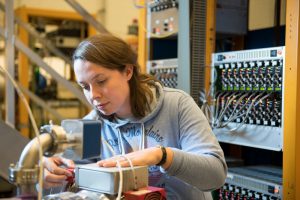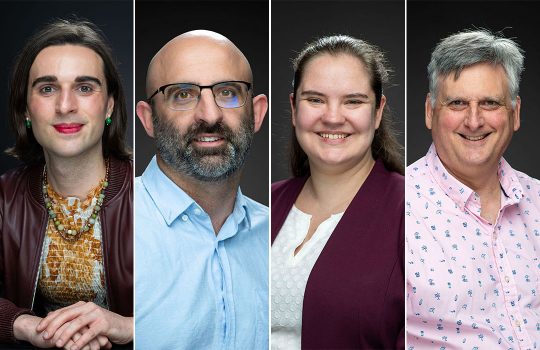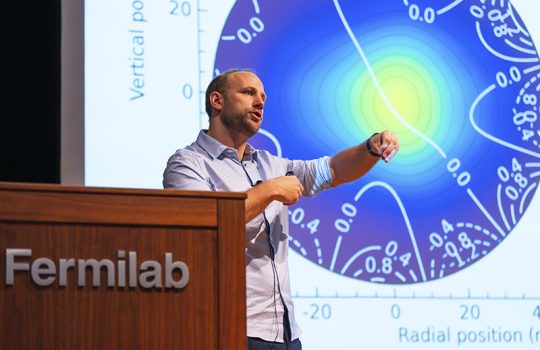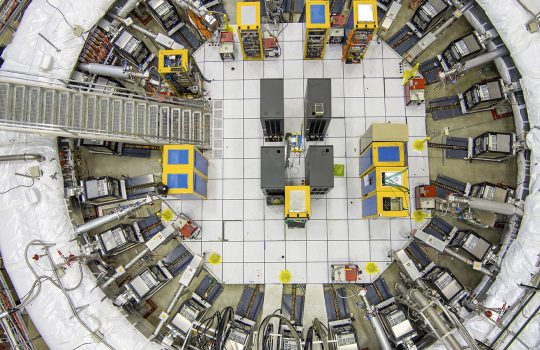How long will you be at Fermilab?
I just started a postdoc appointment, so I will be here for three years, potentially longer. I did my Ph.D. at the University of Liverpool and was here for a year last year working on the Muon g-2 experiment for my thesis.
What is your role in Muon g-2?
Muon g-2 is an experiment to measure properties of muons. We are particularly measuring something called its magnetic moment. We measure it by injecting a beam of muons into a big magnet. I work on the team that helps store the muon beam inside the magnet. Half the time I’m working on hardware things, and half the time I’m doing data analysis.
What intrigues you about muons and Muon g-2?
The reason Muon g-2 is so exciting is that it is a really niche way to try to answer some key questions in particle physics. The muon in particular is really exciting because it can tell scientists if there are new, as yet unobserved, particles and forces that exist in nature.
To me, the experiment seems like a really different way of approaching this question. Instead of doing something speculative, where you are trying to find a hint of something new by measuring loads of different things, we are trying to measure just one number really accurately and test it against an equally accurate prediction.
What is the most exciting part about working on Muon g-2?
The measurement is exciting in itself. It is also nice working with a lot of other people who are already interested in the work. I think, in a lot of jobs, you might be really interested in what you are doing, but it’s hard to convince other people that what you are doing is exciting. As part of Muon g-2, when I’m in the experiment, our meetings may be about how to get this particular capacitor we need, but everyone is still very motivated and focused on the same end goal. I think that’s the best thing about it.
What about your current work at Fermilab differs from your previous Ph.D. work?
Oh, so many things. I used to work on the tracking detectors, but now I work on a completely different system, the kicker, which forces the muons onto their correct path inside the large, magnetic ring. I’m still working on hardware and data analysis, but now I get to work on some electronics, readout systems and build circuit boards too. It is just completely new.
During my Ph.D., I did hands-on work, too, but I was a student, so there were other people deciding what to do. But now it’s like, “Great! Get this data acquisition system to work.” That is definitely new to me.
What do you enjoy outside of work?
I really like soccer, but only watching it. Everyone knows that because the World Cup just happened, and I was very vocal about supporting England. I also like swimming and playing the piano.
What do you enjoy about Fermilab?
I like loads of things about it, which is why I wanted to stay here. It’s such a beautiful place to work, and I like seeing all the animals on site. I had never seen a bison before I came here.
Sometimes I try to run around the site, but usually it turns into more like walking around the site.




